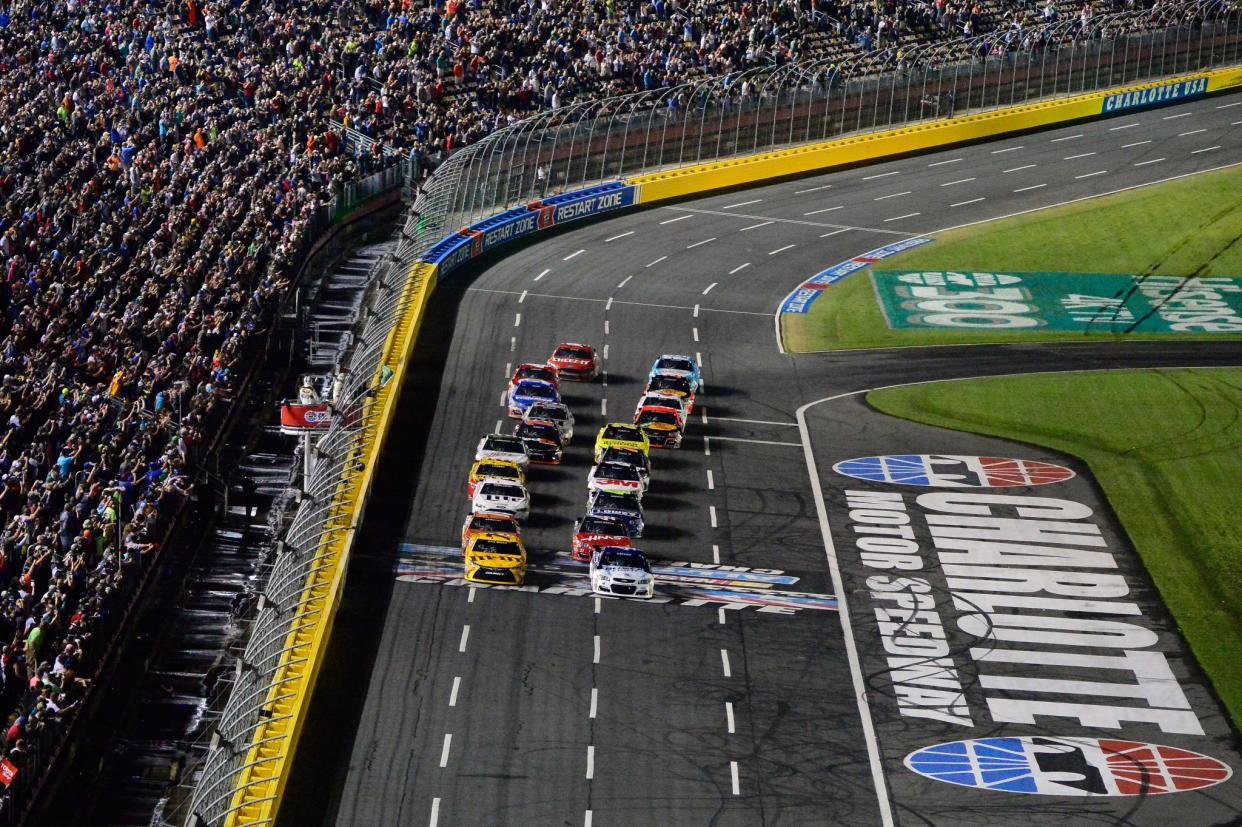It's time to ditch the $1 million prize as a marketing hook for the All-Star Race

Your life isn’t going to change if your favorite driver wins the $1 million prize awarded to the winner of the All-Star Race.
The lives of the members of the winning team won’t change much either. The $1 million prize is less than 0.75 percent of the total winnings Jimmie Johnson has accrued in his Cup Series career. And $1 million would likely buy a company no more than three races as a primary sponsor on Johnson’s car. That’s less than 10 percent of an entire season.
A million is a lot to most everyone watching the All-Star Race, but it’s a relative drop in the bucket to the 20 or so teams that will compete in Saturday night’s race. And that’s why it’s time for NASCAR to figure out a way to sell the race differently. Do NASCAR fans really watch the race to see the rich get richer?
The economic recession of the late 2000s has been blamed as a big reason for NASCAR’s struggles with attendance. 2017 marks the sixth year that NASCAR hasn’t provided attendance estimates for its races and tracks continue to reduce their capacities as they aren’t coming close to selling out.
Blaming middle class economics is a reasonable, albeit simple, explanation for NASCAR’s attendance woes. And by the same rationale, it’s reasonable to assume that those same fans won’t be incredibly invested into a race that rewards their favorite millionaire driver and his multi-million dollar team with a little more cash. Economic resentment was a driving force in the 2016 election. Assuming a level of political and sporting crossover isn’t a large leap.
The $1 million prize is dated too. It was first introduced in the 2003 All-Star Race, the final one sponsored by Winston. That season, Johnson won over $7.7 million, second to champion Matt Kenseth’s $9.4 million in earnings.
In 2015 — the last season NASCAR made team earnings information public — Kevin Harvick led the series with over $11.7 million in earnings while 28 drivers had over $4 million in listed race winnings. In 2003, 18 drivers won over $4 million. Simply adjusting for inflation from 2003 means the original $1 million prize should be at $1.3 million in 2017.
Or if you want to really see how dated the incentive is, 2017 marks the ninth different format the race has had since the prize was introduced.
If NASCAR and new series sponsor Monster Energy wanted to make a huge splash, the two would team up to offer a $10 million prize for the winner of the All-Star Race. While it admittedly runs counter to the thought process above, it would provide a far greater incentive for drivers and teams.
Or if the sanctioning body and Monster wanted to get adventurous, they’d follow the lead of Busch beer on a far wider scale. The beer company held a contest and selected a fan who will win $1 million if Kevin Harvick wins Saturday night’s race. Can you imagine a nationwide contest that awards cash prizes or tickets to future NASCAR races to dozens, if not hundreds of NASCAR fans if their favorite driver wins the All-Star Race?
The race itself has lots of issues. There’s a reason the format was changed once again after the confusing officiating of 2016 and there are lots of other tracks that would put on a better show for fans in the stands and watching at home than Charlotte Motor Speedway does. Changing the structure of the race’s prize money is just one of many tweaks NASCAR should make.
But if NASCAR and Monster want to stand pat, they have every right. Even if the race has become stagnant, it’s not disappearing from the schedule. It just needs a new hook or three and the sooner the two realize it, the better.
– – – – – – –
Nick Bromberg is the editor of Dr. Saturday and From the Marbles on Yahoo Sports. Have a tip? Email him at nickbromberg@yahoo.com or follow him on Twitter!



